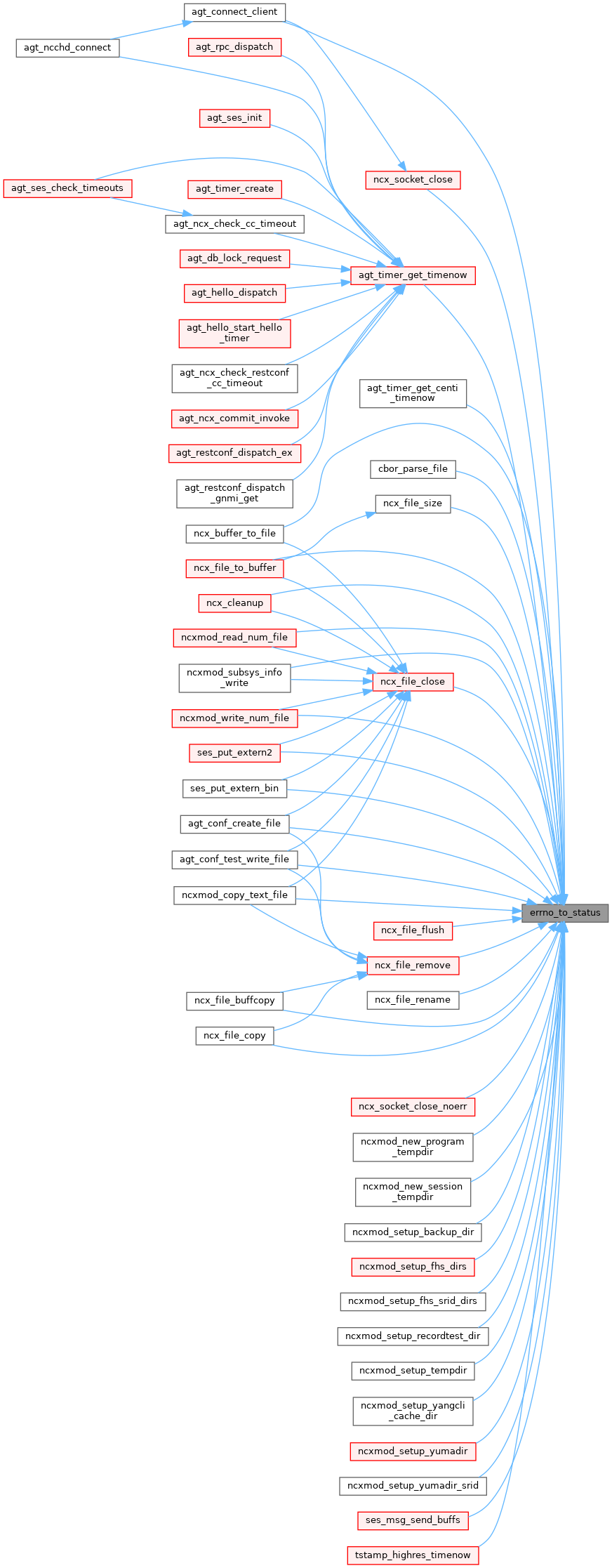 |
yumapro
25.10-3
YumaPro SDK
|
 |
yumapro
25.10-3
YumaPro SDK
|
Default error messages and other error reporting support functions. More...

Functions | |
| status_t | set_error (const char *filename, int linenum, status_t status, int sqlError) |
| Generate an internal programming error report. More... | |
| void | print_errors (void) |
| Dump any entries stored in the error_stack. | |
| void | clear_errors (void) |
| Clear the error_stack if it has any errors stored in it. More... | |
| errtyp_t | get_errtyp (status_t res) |
| Get the error classification for the result code. More... | |
| const char * | get_error_string (status_t res) |
| Get the error message for a specific internal error. More... | |
| status_t | errno_to_status (void) |
| Get the errno variable and convert it to a status_t. More... | |
| void | status_init (void) |
| Init this module. More... | |
| void | status_cleanup (void) |
| Cleanup this module. More... | |
| void | print_error_count (void) |
| Print the error_count field, if it is non-zero to STDOUT or the logfile. More... | |
| void | print_error_messages (void) |
| Print the error number and error message for each error to STDOUT or the logfile. More... | |
| void | print_lang_error_messages (void) |
| Print the error number and error message for each error to STDOUT or the logfile; used for error messages in multiple languages. More... | |
| boolean | is_yang_warning (status_t res) |
| Check if the status code represents a YANG warning. More... | |
Default error messages and other error reporting support functions.
The get_error_string() function is used throughout the system to convert a status_t enumeration to its default error message.
| void clear_errors | ( | void | ) |
Clear the error_stack if it has any errors stored in it.

| status_t errno_to_status | ( | void | ) |
Get the errno variable and convert it to a status_t.
Must be called just after error occurred to prevent the errno variable from being overwritten by a new operation

| const char * get_error_string | ( | status_t | res | ) |
Get the error message for a specific internal error.
| res | internal status_t error code |
Get the error classification for the result code.
| res | result code |
| boolean is_yang_warning | ( | status_t | res | ) |
Check if the status code represents a YANG warning.
| res | internal status_t error code to check |

| void print_error_count | ( | void | ) |
Print the error_count field, if it is non-zero to STDOUT or the logfile.
Clears out the error_count afterwards so the count will start over after printing!!!
| void print_error_messages | ( | void | ) |
Print the error number and error message for each error to STDOUT or the logfile.

| void print_lang_error_messages | ( | void | ) |
Print the error number and error message for each error to STDOUT or the logfile; used for error messages in multiple languages.

Generate an internal programming error report.
THIS FUNCTION IS NOT FOR REPORTING CLIENT ERRORS IN <rpc-error>
An error stack entry or if log_error is enabled, then log the error report right now.
Used to flag internal code errors only!!! Use log_error for normal errors expected during operation
This function call will force an assert(0) crash!!
DO NOT USE THIS FUNCTION DIRECTLY! USE THE SET_ERROR MACRO INSTEAD!
| filename | C filename that caused the error |
| linenum | line number in the C file that caused the error |
| status | internal error code |
| sqlError | mySQL error code (deprecated) |

| void status_cleanup | ( | void | ) |
Cleanup this module.


| void status_init | ( | void | ) |
Init this module.
